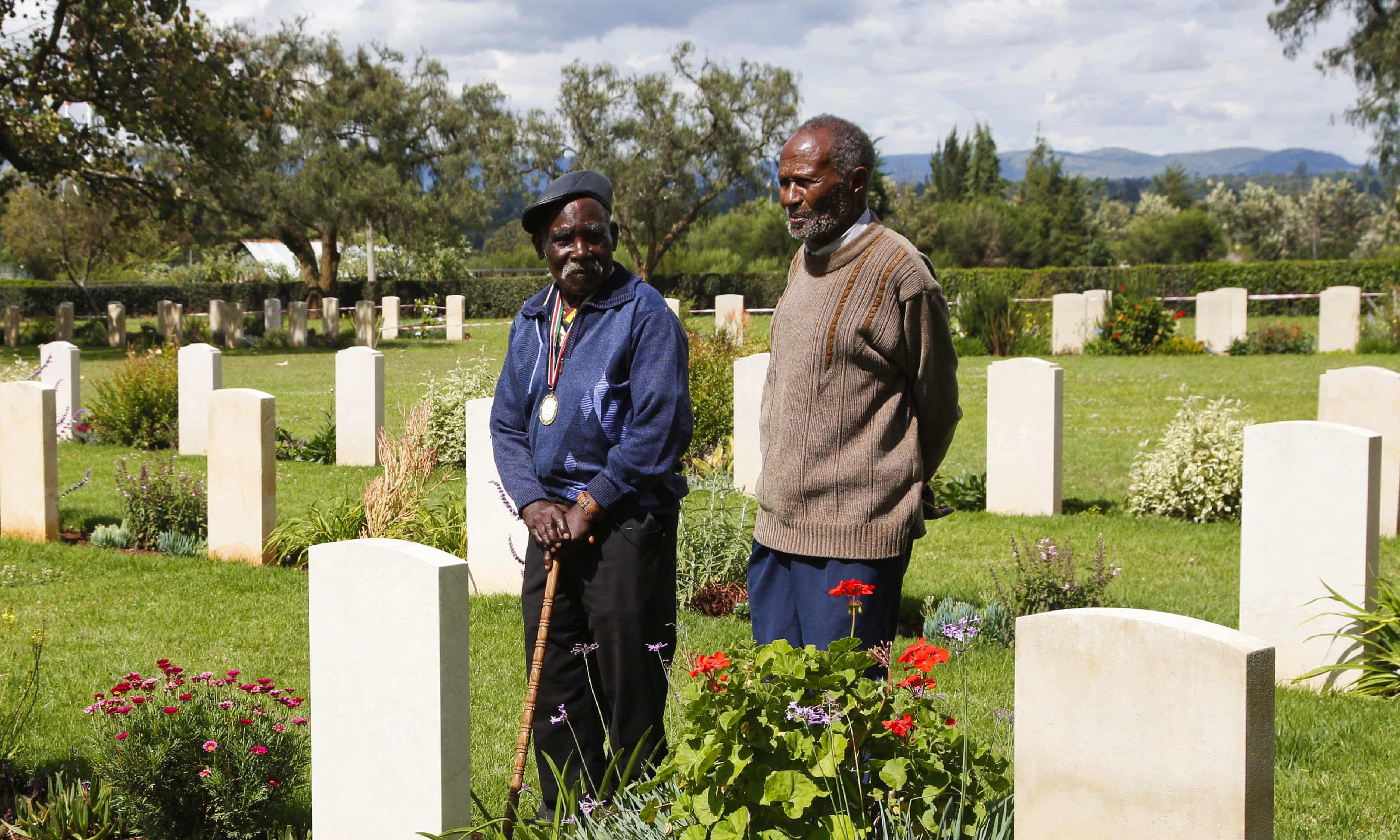
'We put our lives in danger for the British': the forgotten African soldiers – in pictures
90,000 Africans fought the Japanese in Myanmar on behalf of Britain in the second world war. Feelings are mixed in the few remaining survivors about being sent by a colonial power to fight a battle that wasn’t theirs
by Jack Losh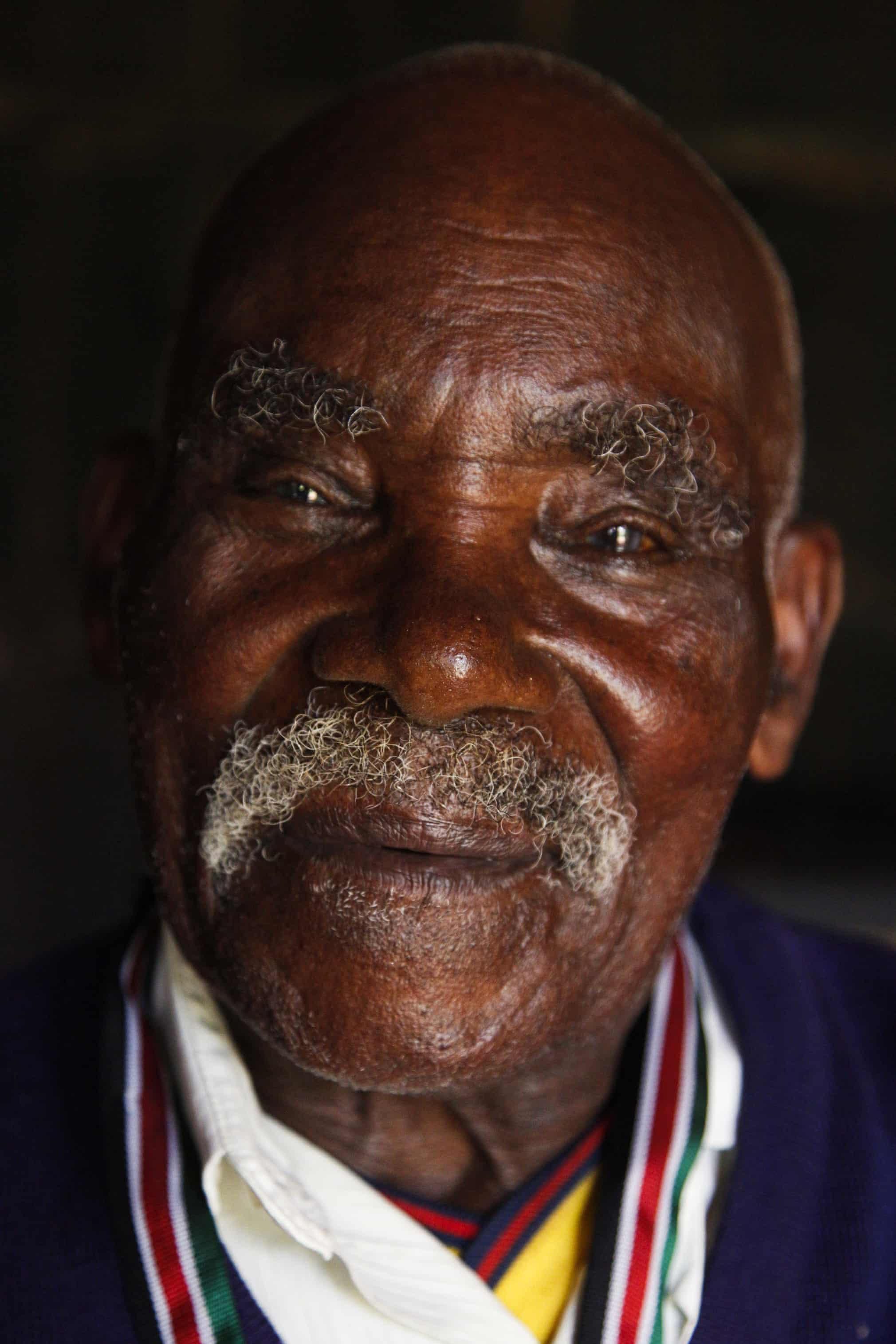
Eusebio Mbiuki, a Kenyan born in 1918, enlisted in Britain’s colonial armed forces during the second world war before being deployed to the jungles of what was then Burma, now Myanmar, to fight the Japanese
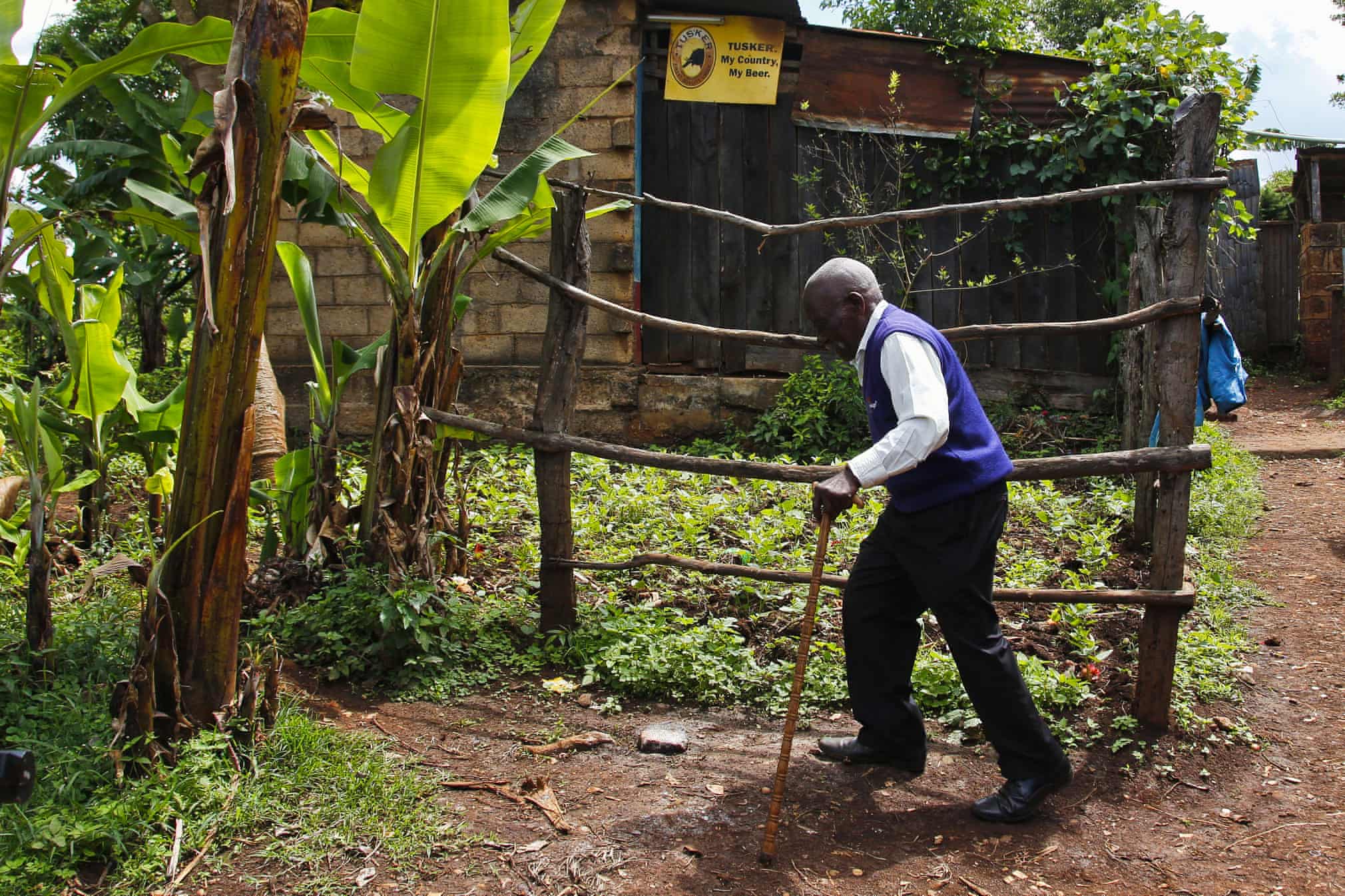
Mbiuki walks through his village back to his dilapidated shack, where he lives near his son and daughter-in-law. He was one of some 90,000 Africans who fought in Myanmar on behalf of Britain’s war effort, although their contribution largely remains out of the spotlight today. Rations were in short supply while rain was often torrential and the forests filled with tropical disease. ‘Most of the time you’d want to run away,’ he says. ‘But you would just say, “God help me. God help me. One day I’ll go home”’
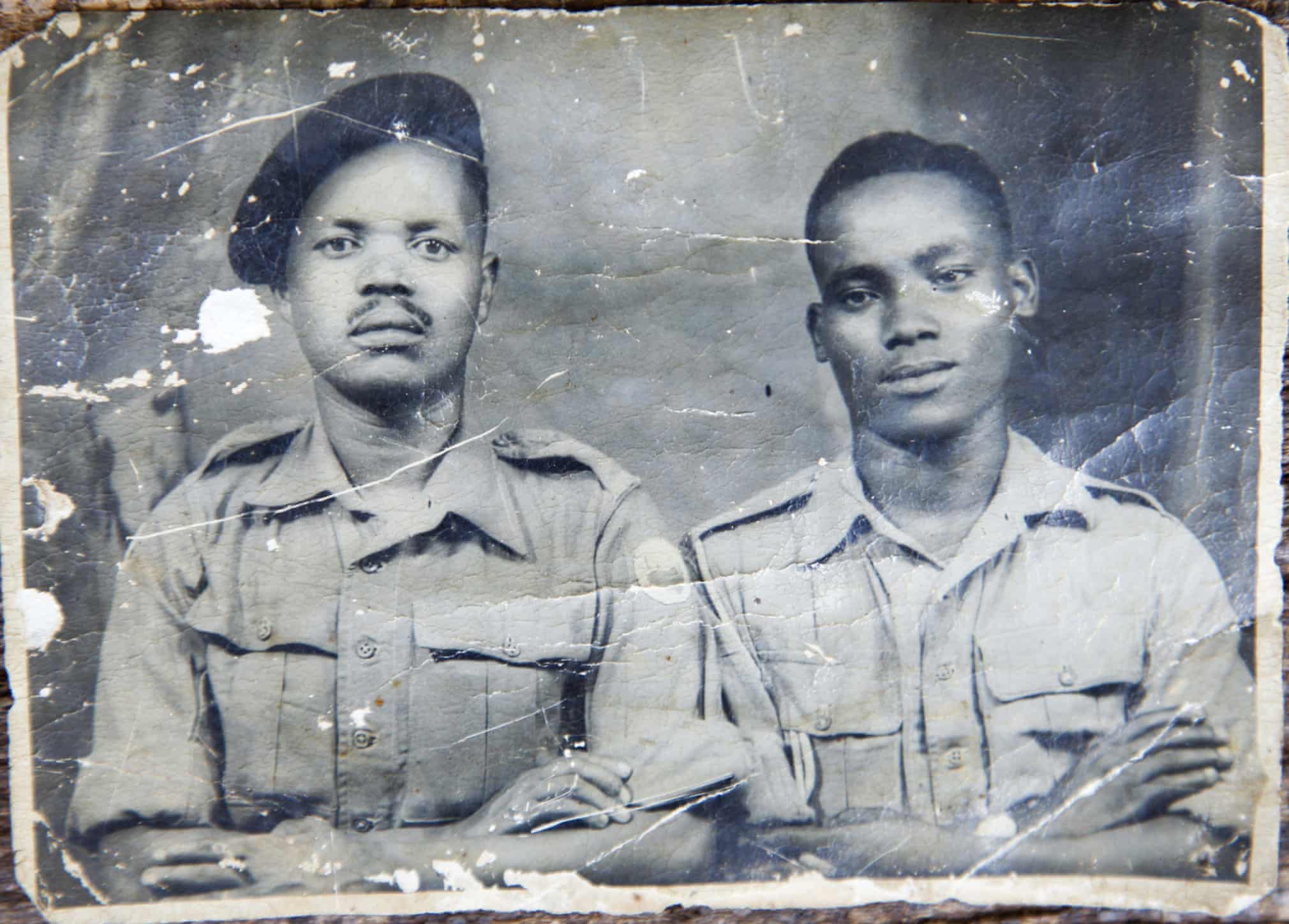
Mbiuki (left) as a soldier in the 1940s. During the second world war, European powers mobilised a million troops from their African colonies to fight on battlefields around the world. It was the largest single movement of African men overseas since the slave trade. Despite the official line corporal punishment was commonplace, though it had been officially outlawed decades earlier
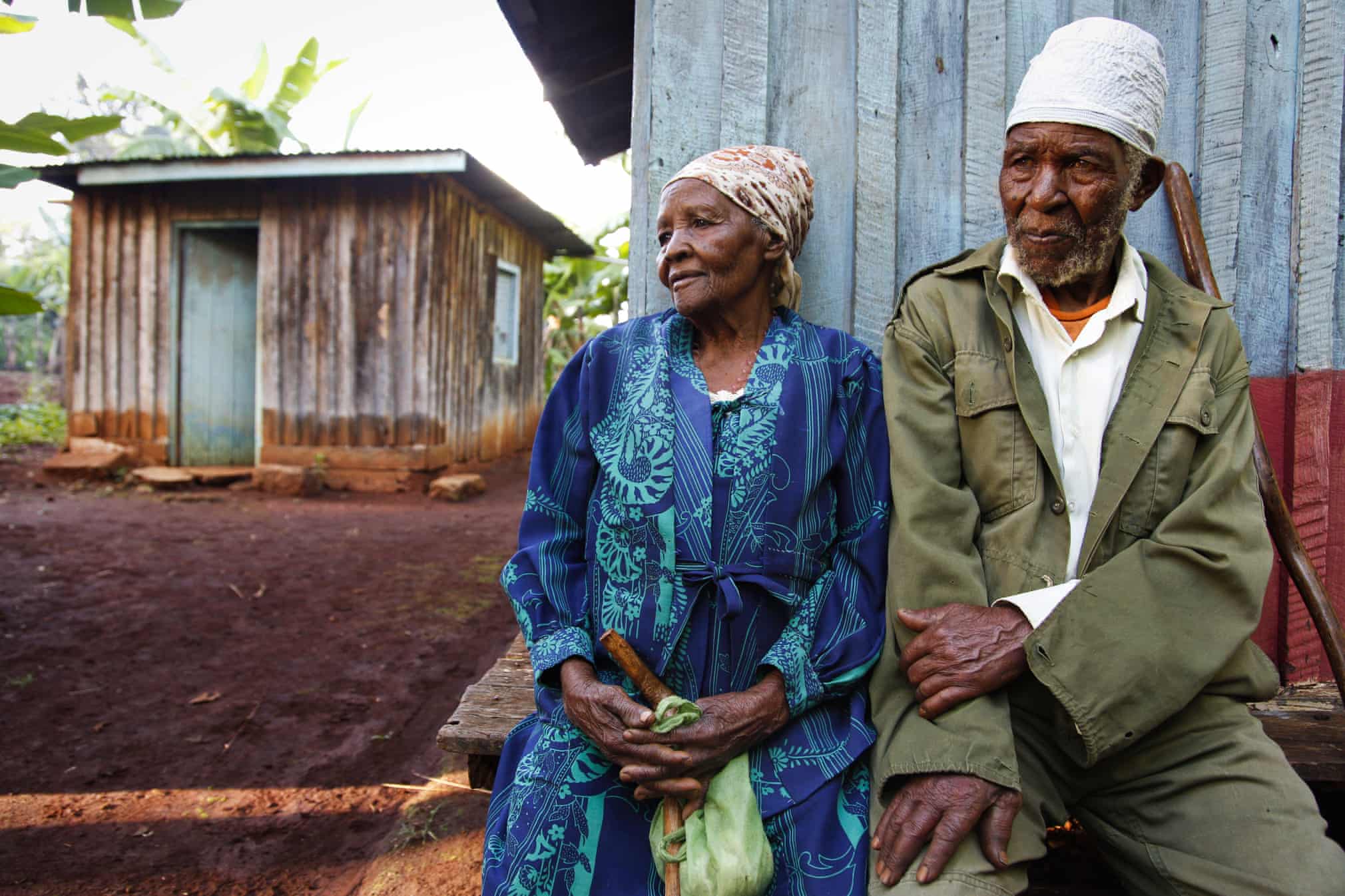
Muchara Ntiba, a Kenyan veteran in his late 90s who fought in Myanmar against Tokyo’s troops during the war, sits outside his home with his wife near Mount Kenya in Tharaka-Nithi county. ‘Burma was tough,’ he remembers. ‘Bullets were just raining on us’
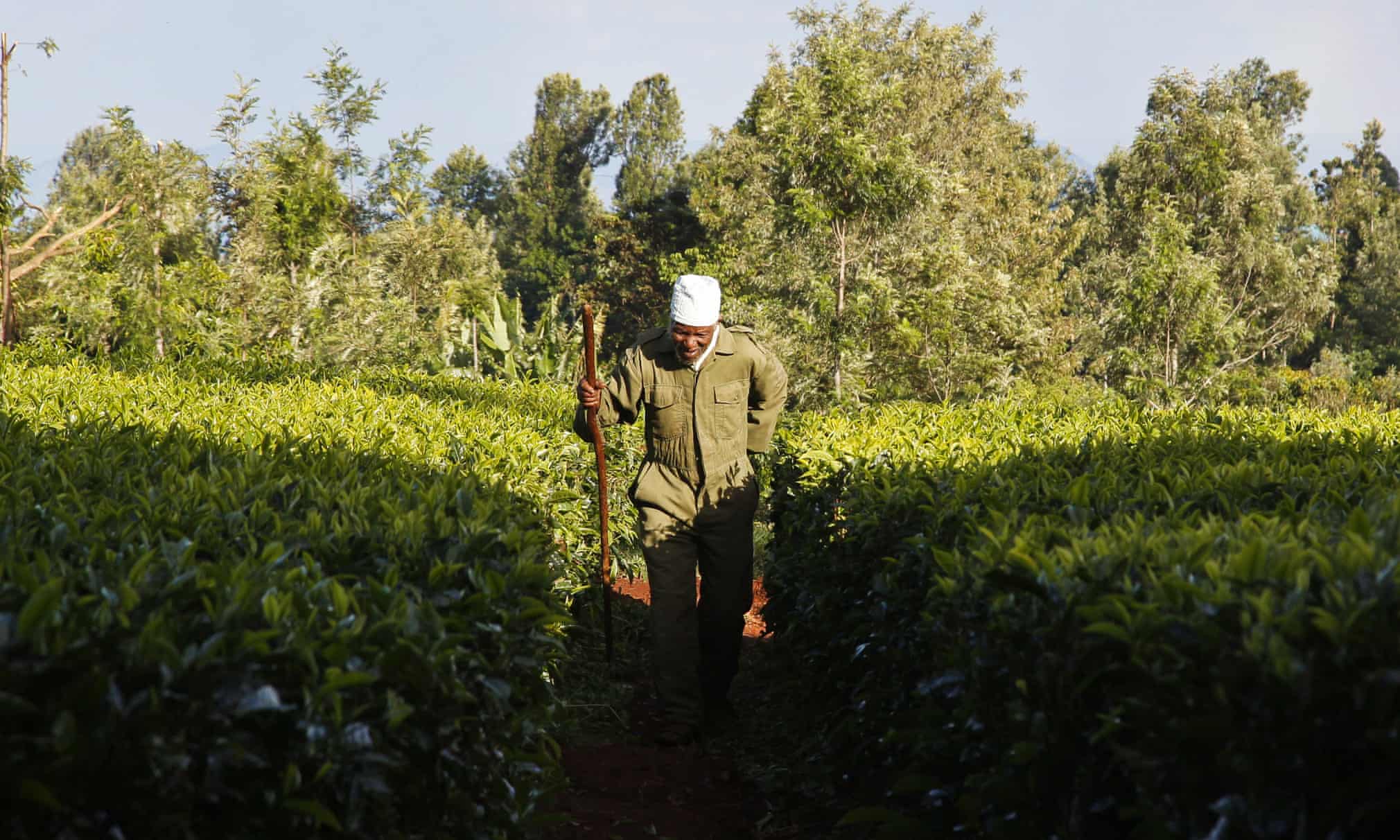
Ntiba now lives a quiet life in his highland village and grows food to supplement his meagre pension. He still suffers with back pain from a wartime injury and recalls how he and his men faced rough treatment at the hands of some officers – and felt a sense of abandonment at the end of the war. ‘We would give them the palms of our hands to be beaten – afterwards, even an attempt to hold something would be hard,’ he says. ‘We put our lives in danger for Britain. But the British government did not listen to our demands. We got out with nothing’
Photograph: Jack Losh
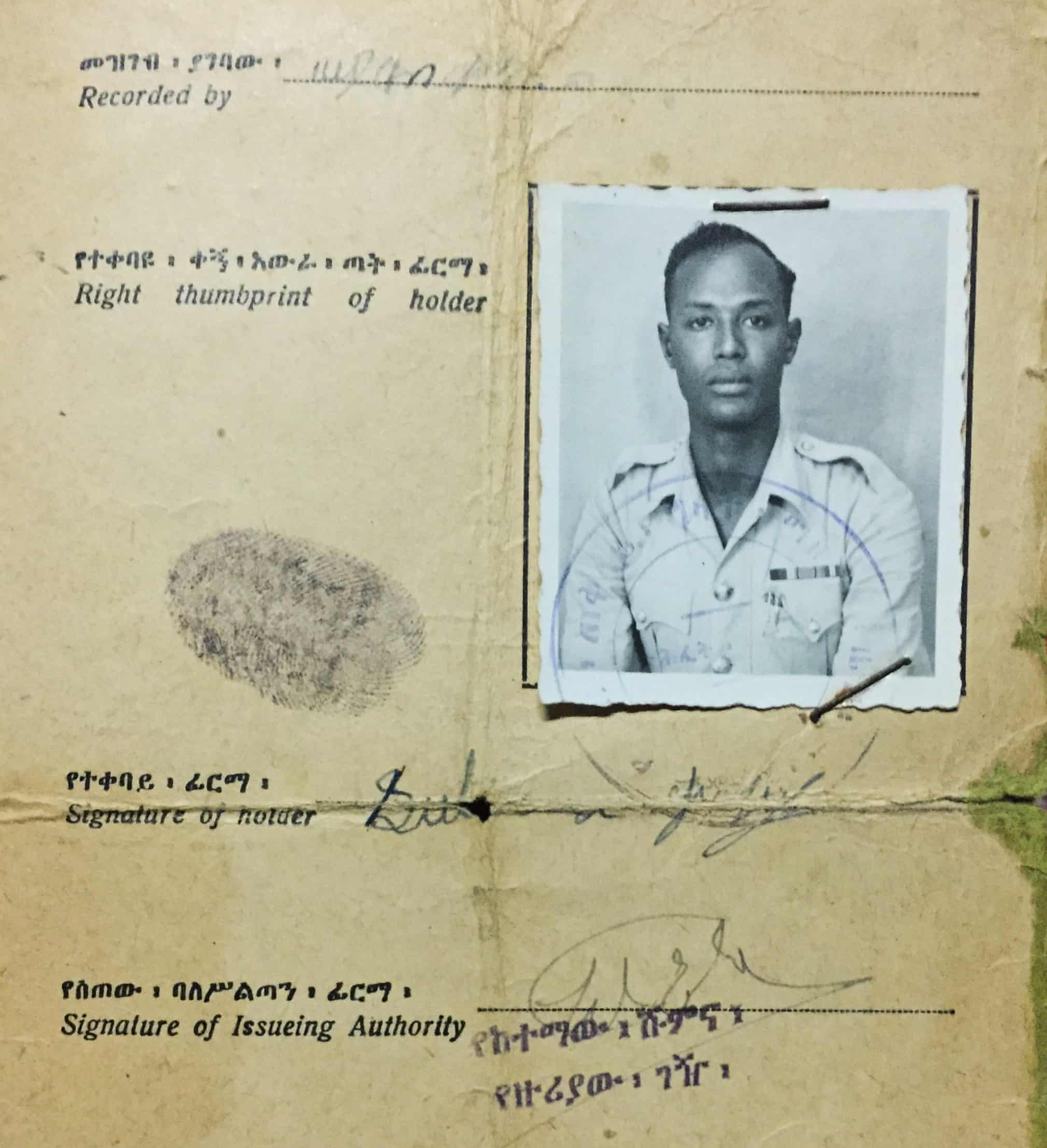
The identity card of Suliman Yusuf who left his home in Nairobi to join the King’s African Rifles before being sent to vicious battlegrounds in Myanmar. After the war, he was repatriated not to Kenya but instead to the Somali region of Ethiopia – with no means to get home. Nor did he receive the end-of-war bonus promised to all soldiers, or a disability pension for an injury he sustained. ‘My father should have been paid properly because he fought for Britain,’ his son, Amer, says. ‘I just feel sorry for him. He did his best. He deserved an apology and he deserved payment’
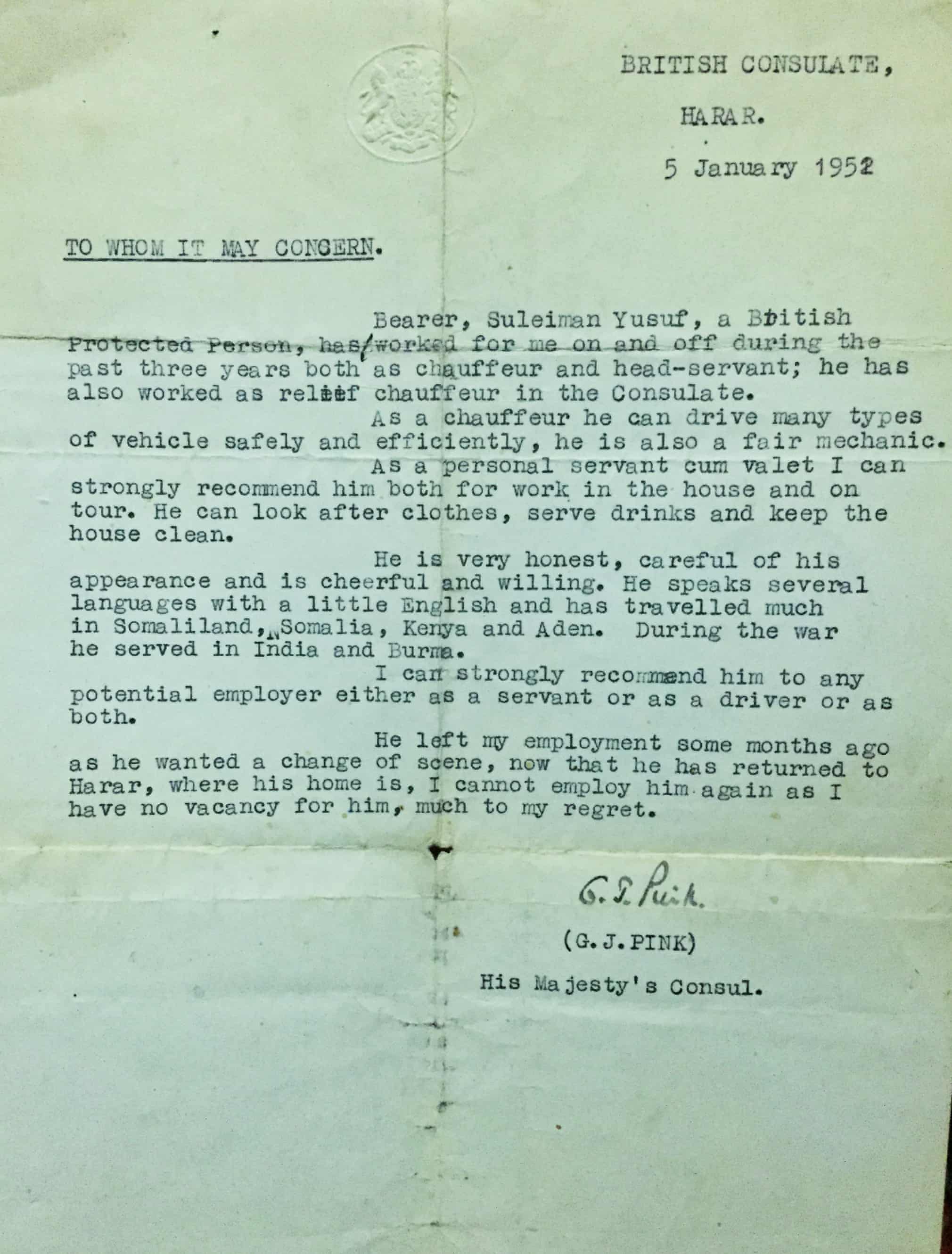
A professional reference written after the war in 1952 for Yusuf by Gerald Pink, then the British consul in Harar, eastern Ethiopia, praising the veteran for his various skills and noting his wartime service in the far east. ‘I can strongly recommend him both for work in the house and on tour. He can look after clothes, serve drinks and keep the house clean. He is very honest, careful of his appearance and is cheerful and willing’
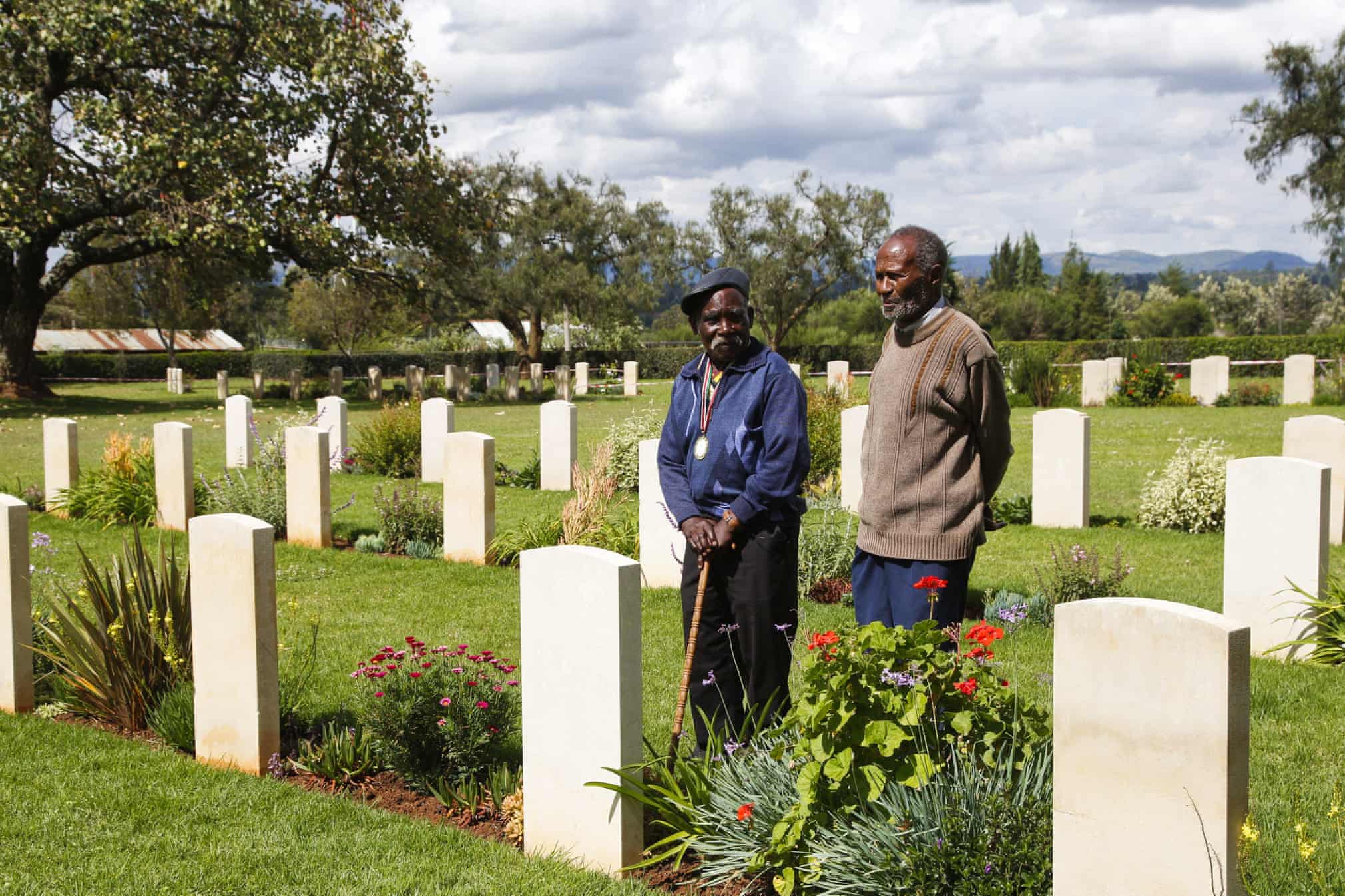
Eusebio Mbiuki and Gershon Fundi, two veterans of the King’s African Rifles, pay their respects to fallen comrades at a war cemetery near Mount Kenya
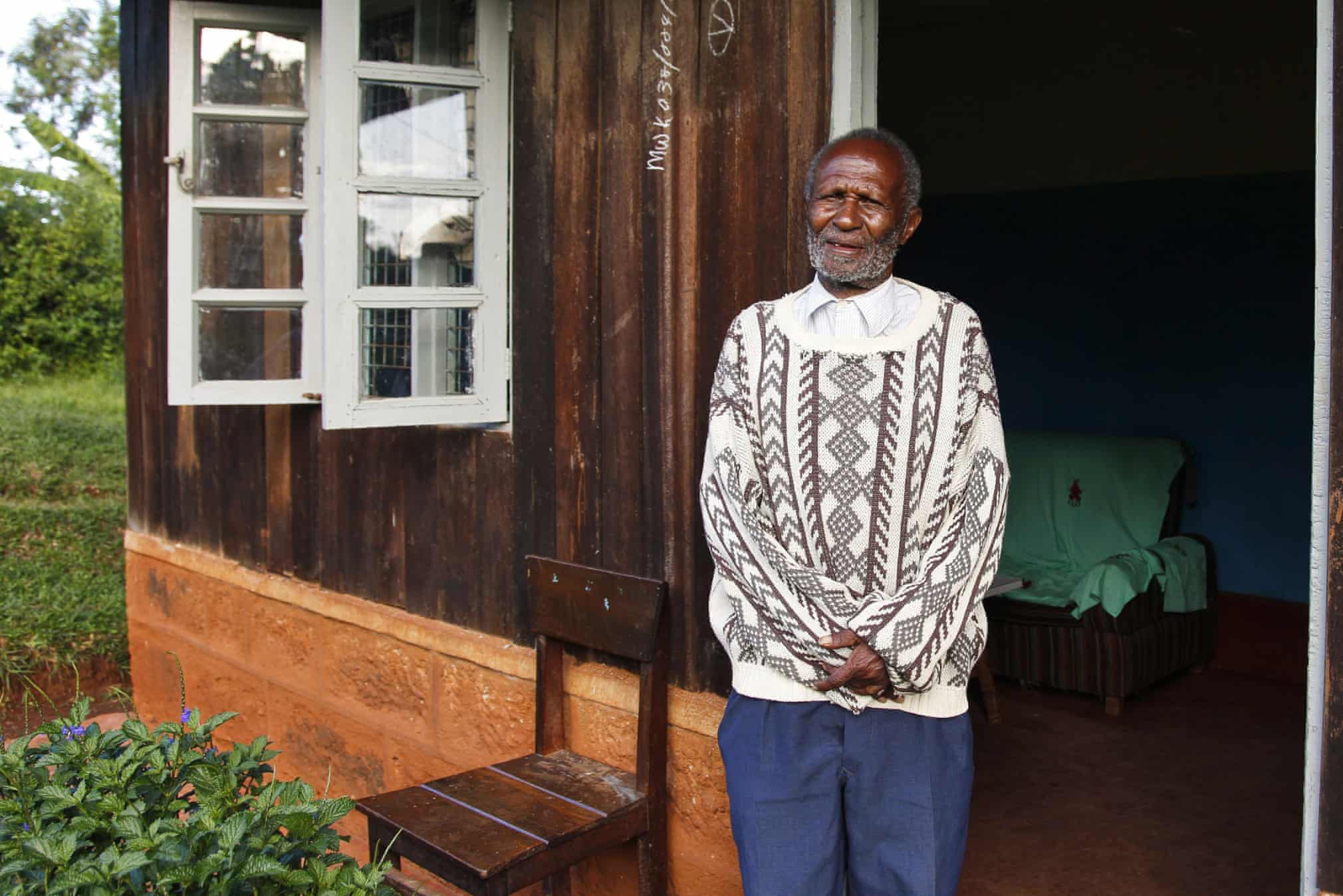
Gershon Fundi, now 94, served as a signalman. While many askari – local soldiers fighting for European colonial powers in Africa – remember their service with pride, he is critical of having to serve on behalf of a far-off colonial power. ‘If you run … chiefs would arrest you and then you’re going to be brought back,’ he says. ‘But how can you complain? We have no voice, we have no voice at all.’ Despite appeals by senior officers such as Gen Sir William Slim, who commanded African divisions in Myanmar, colonial authorities ruled that pension payments were unnecessary for ‘natives’
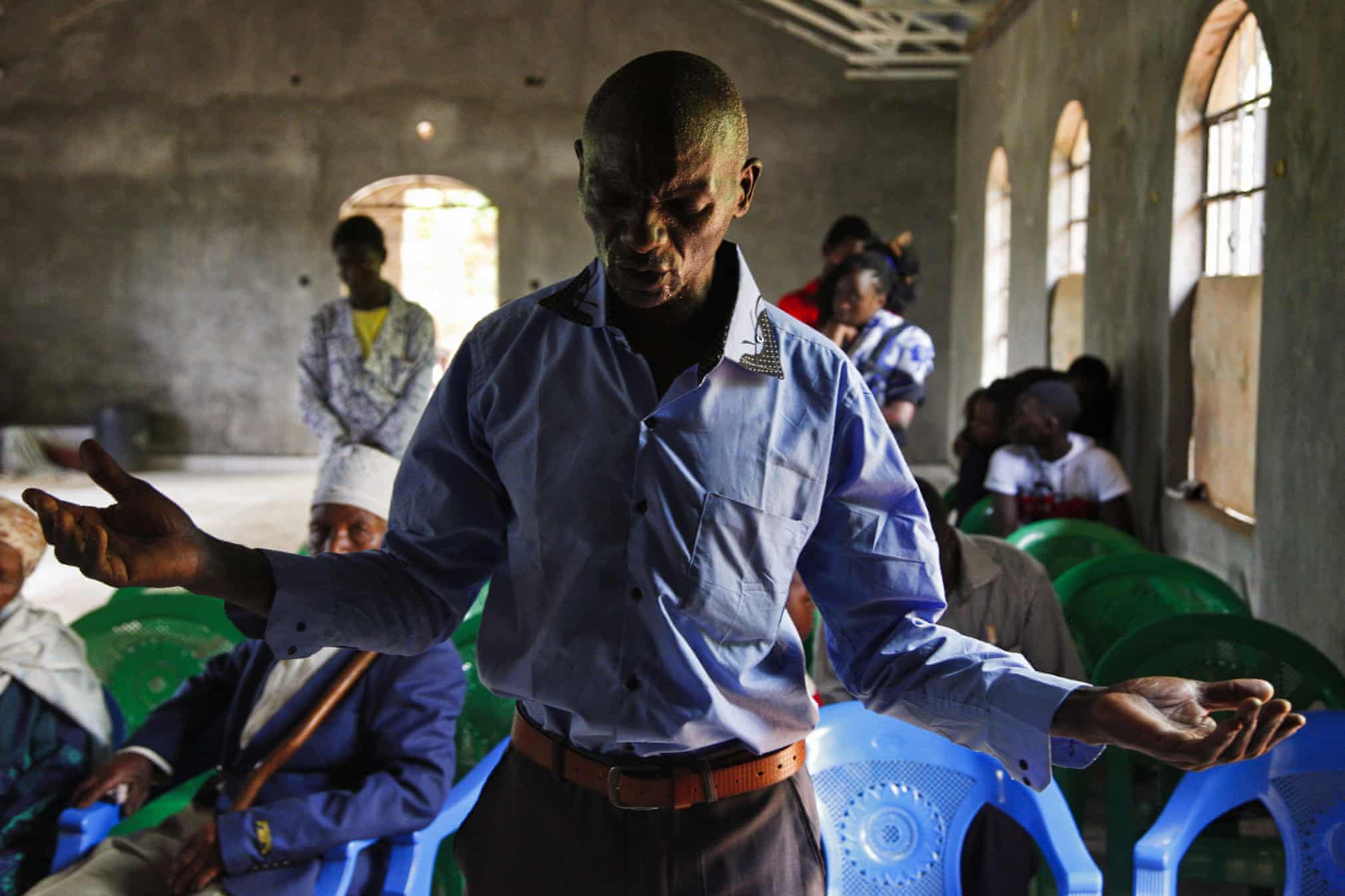
In the Kenyan highlands, Muchara Ntiba’s son prays at a service in a tin-roof church as attendees give thanks to elderly locals who fought for the Allies. In November 2018, as the world prepared to mark the centenary of the end of the first world war, Britain announced a £12 million package to help impoverished veterans and war widows from Commonwealth nations. Former officers have welcomed this but say more is needed to lift elderly veterans in Africa out of poverty
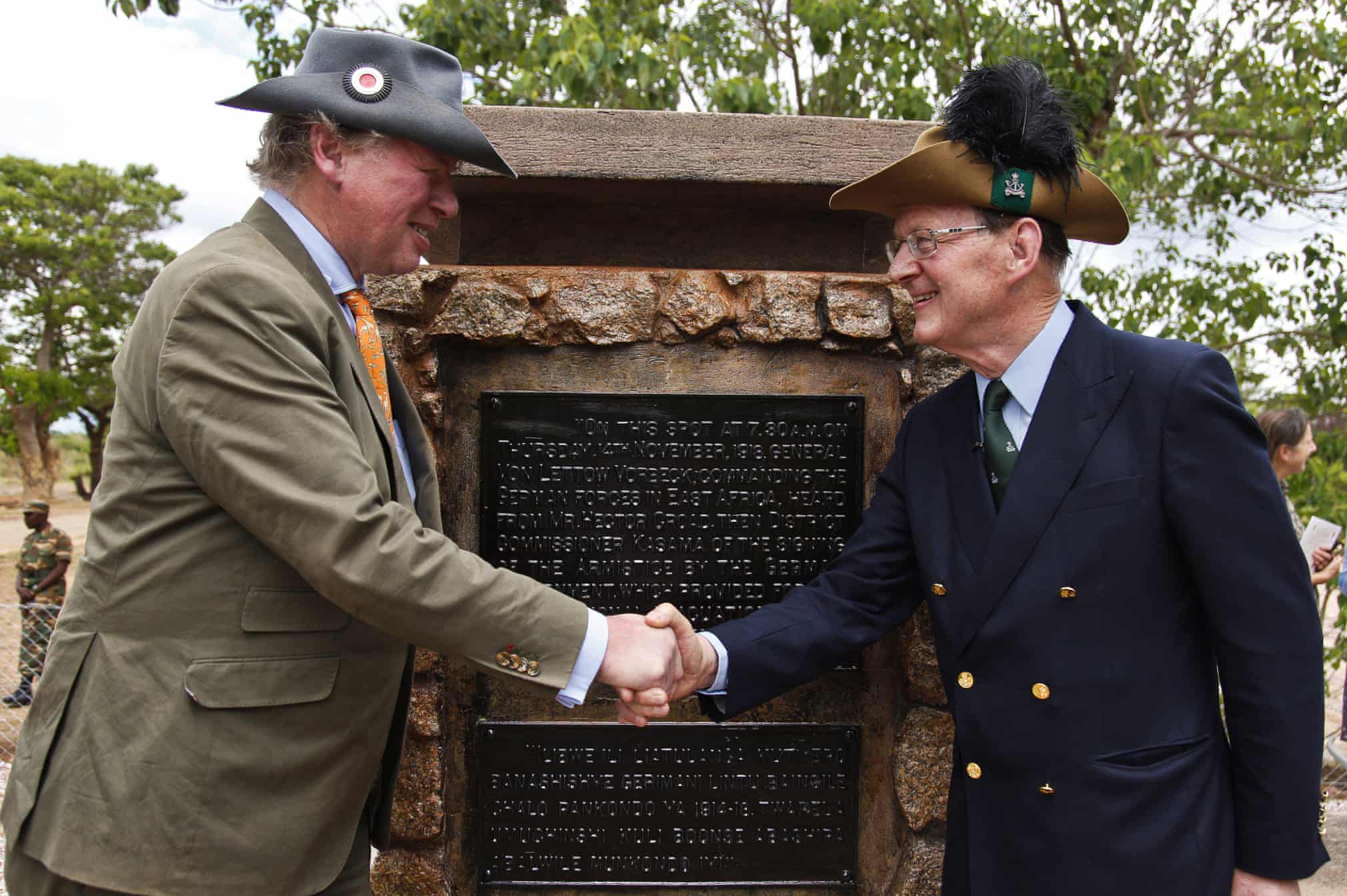
At a war memorial in northern Zambia, David Williams, president of the King’s African Rifles Association, shakes the hand of the grandson of Gen von Lettow-Vorbeck, who commanded German forces in East Africa during the first world war. Born in Southern Rhodesia and raised as a child of the British empire, Williams has dedicated his life to raising funds for askari veterans. ‘They are very fine soldiers and have proven to be so,’ he says. ‘One continues to be keen to fulfil what one regards as a sort of obligation towards them’
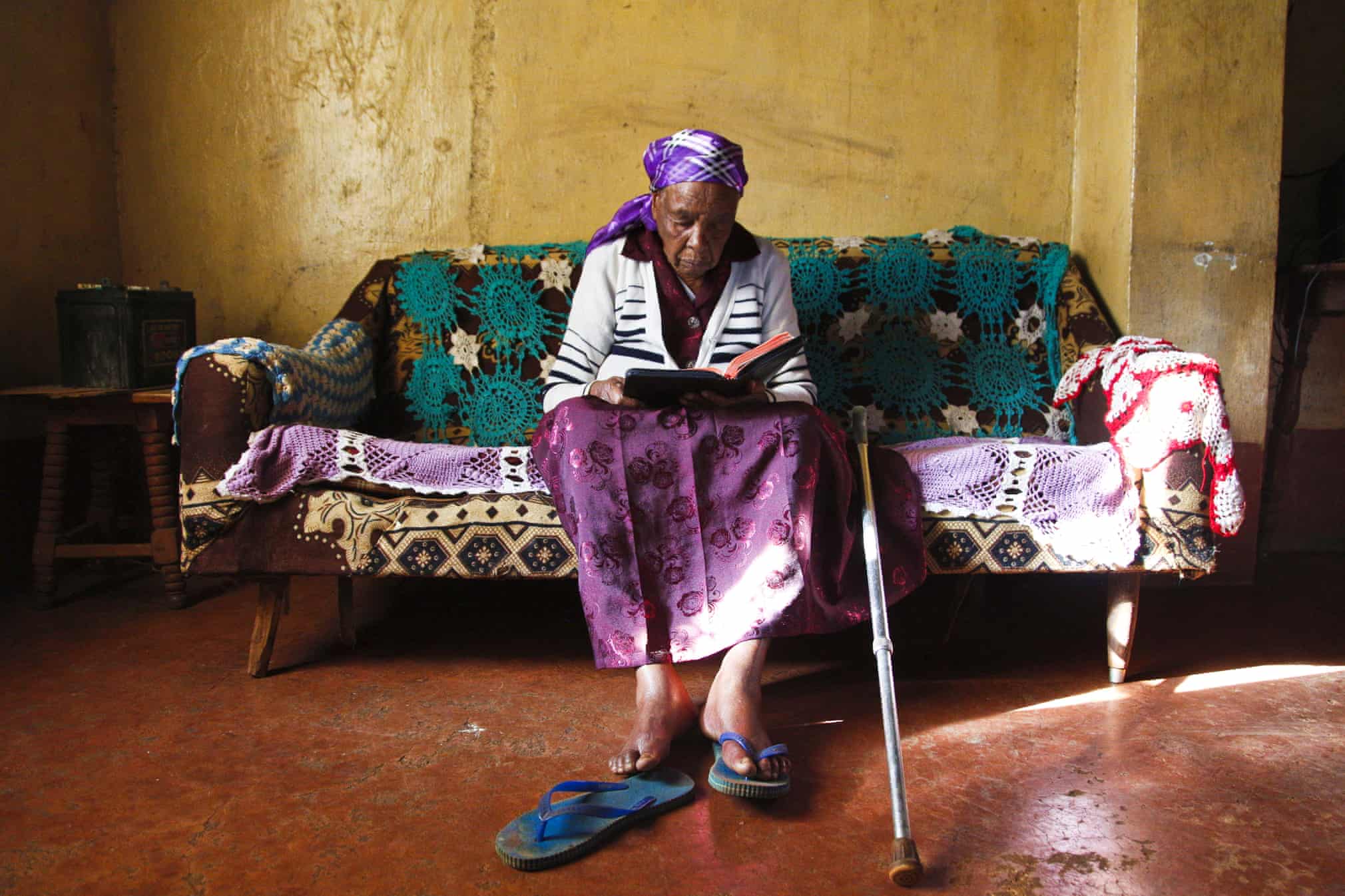
Grace Mbithe, a widow in her late 90s, reads her bible in her ramshackle home in the Kenyan highlands. Her husband Stanley was forcibly recruited into the ranks of Britain’s colonial army and returned from service deeply traumatised by the horrors of combat. ‘He came back unwell,’ she says. ‘At night we couldn’t sleep. This happened when he remembered what he had gone through. If he heard rain while we were sleeping, he would get up, he would go outside and it would rain on him over and over again, while his heart beat faster and faster’
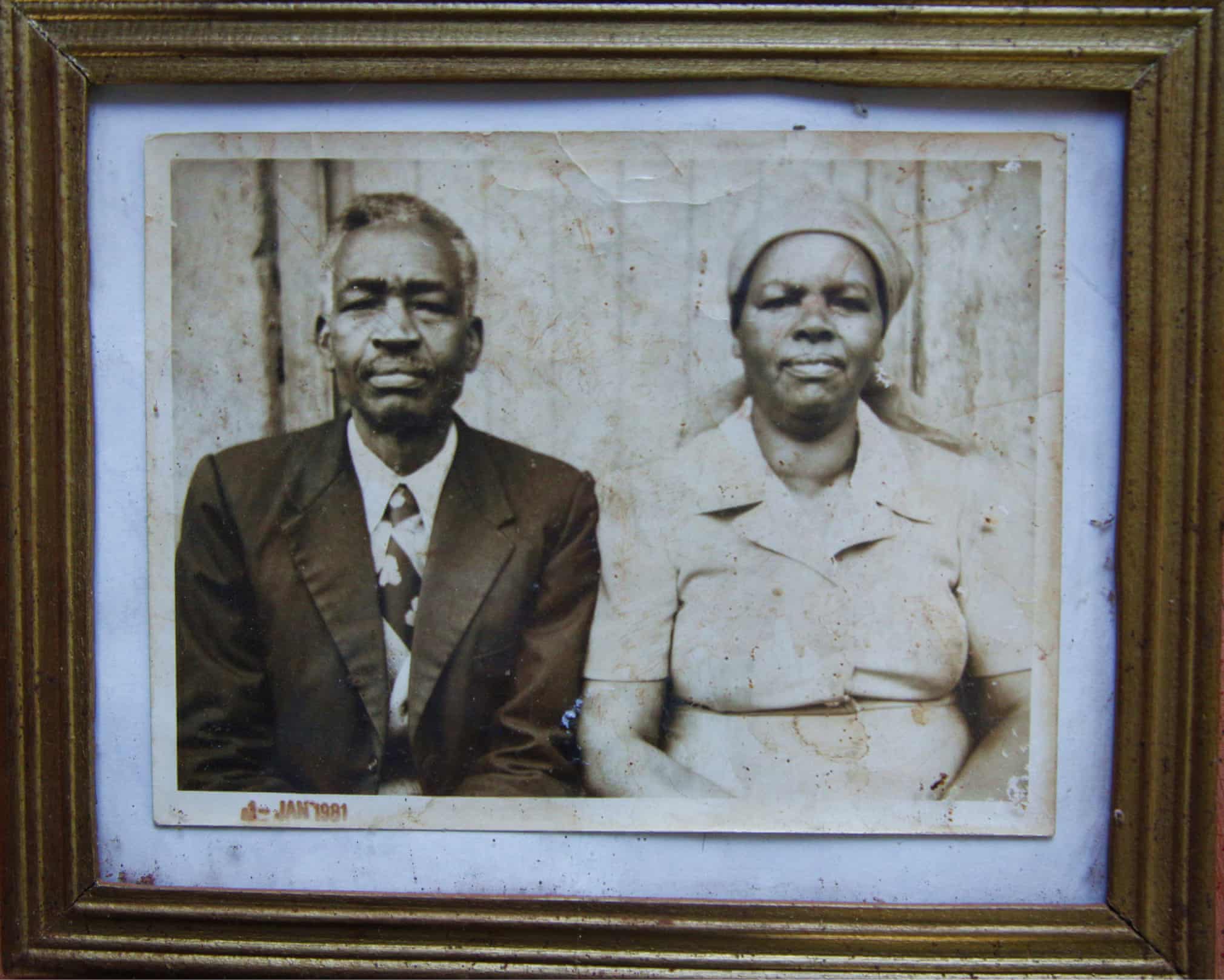
Mbithe with her husband Stanley in a family photograph. In previous interviews, the former chief of the UK armed forces, Gen Lord David Richards, has condemned the neglect of soldiers like Stanley following their service in the British army. ‘Surely if Britain and the British people mean anything, it’s about generosity of spirit,’ he said. ‘I feel our political leadership sometimes doesn’t remember that’